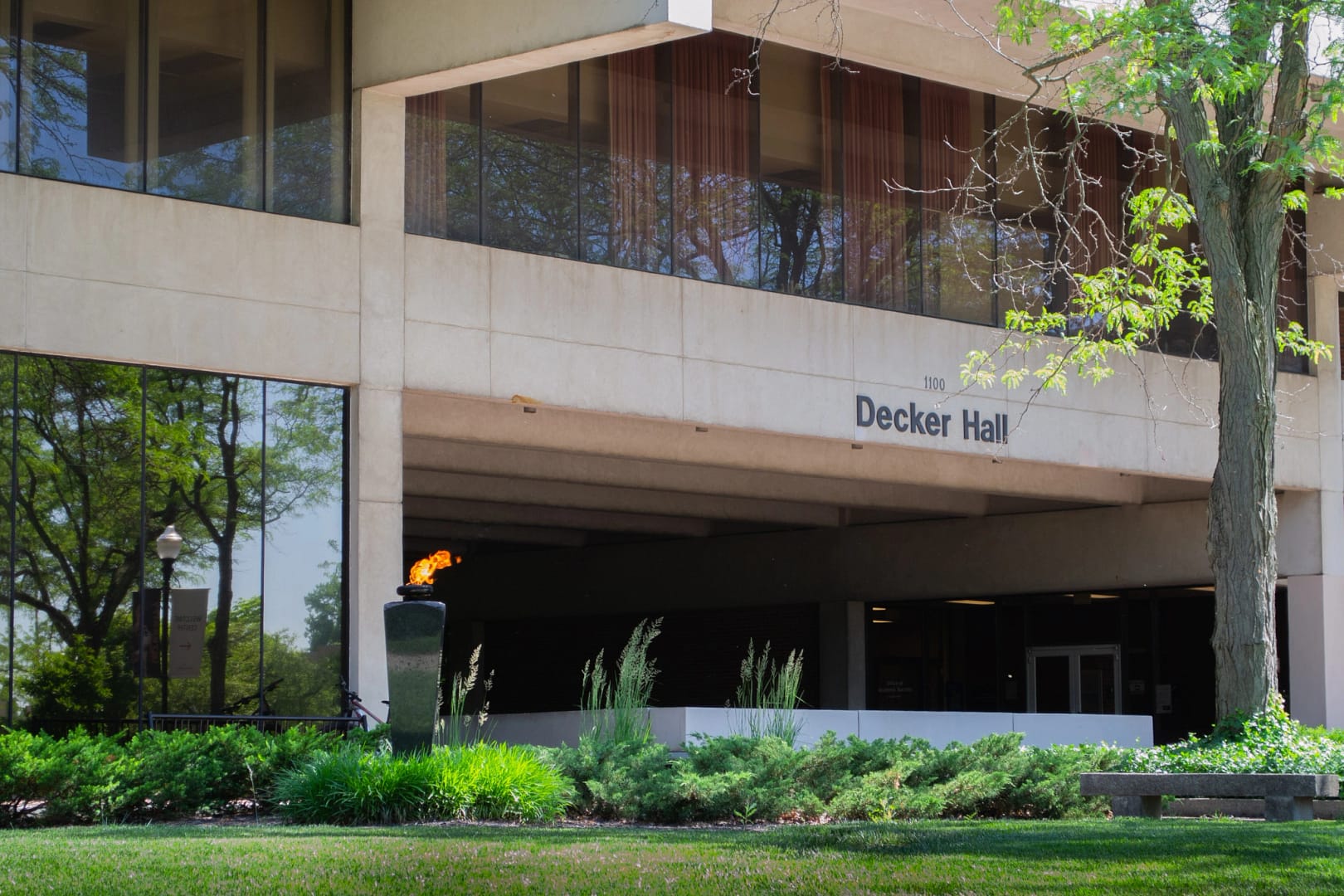
AU to Host Six Faculty Colloquia
2 MIN. READ
Anderson, Ind. — Six Anderson University faculty members are scheduled to present throughout the 2023-24 academic year as a part of the faculty colloquia. This is a time where faculty share their scholarly activity and research with the AU community. All sessions are scheduled from 3 to 4 p.m. on Tuesdays in Hartung Hall 101 and are open to the public.
September 26, 2023: Prof. Erich Yetter
The Acroamatic Process of Choreographing a Narrative Ballet
This presentation explores the juxtaposition of kinetic and visual elements in the creative process of choreographing a ballet and examines the challenges that arise when choreographers create dramatic works that transcend time periods, blending past and present aesthetics. It highlights how various choreographic techniques can be employed to enhance storytelling in a ballet, allowing a choreographer to reimagine traditional narratives in a contemporary ethos for younger constituents. The lecture also touches on the relevance of ballet as an art form, emphasizing the potential for innovation and creativity that arises through aesthetic management and artistic choice, and how an artist may consciously employ Christian imagery in secular theatrical presentations. Overall, it offers a glimpse into the complex and thought-provoking approach to creating a narrative movement work, drawing from a variety of disciplines, and examining the in-depth process of assembling a full length ballet from start to finish.
October 31, 2023: Prof. Peter Elliott
Analysis of Error Patterns in First-Year Composition Essays
Thirty essays from Anderson University first-year composition students were randomly selected and compiled from dozens of sections over 12 years of teaching. Eight categories were coded for common grammatical errors using standard classroom English as the measuring stick. Clear patterns emerged during the rapid expansion of written communication technologies over the past decade. One of the most surprising findings was few instances of textspeak in student writing. However, there seems to be clear evidence of other texting features that contribute to common errors. In addition to sharing results of this sabbatical project study, the presentation will hopefully spur thought and discussion about how the traditional measurements of writing mechanics may further the marginalization of the students most affected by it.
November 28, 2023: Dr. Jason Varner
Becoming a Self: Christianity, Liminality, and the Power of Exomologesis
What is a Self? Where did the western notion of the Self come from? In this session, we will begin with an idea Michel Foucault introduced in a now famous series of lectures given at the Collège de France in 1979-1980 he titled “On the Government of the Living.” In his lectures, Foucault argued that at the core of Christianity lies a dynamic tension that grew into what we now understand to be the modern western Self. We will explore this idea in historical context, before turning our attention to how a truly Christian approach to reality speaks to the moment of cultural transition within which we all now find ourselves.
January 30, 2024: Dr. Connor J.S. Sutton (with Dr. Ilker Kalin and recent AU graduate Morgan Wood)
How the Strong Lose Their Wars: The Limits of Material Capabilities in Interstate War Outcomes
This paper explores how strong states lose their wars. Military capability advantages are the strongest predictor of war outcomes as relatively more capable actors are more likely to win their wars than their less capable opponents. However, strong states – including major powers – may lose wars despite significant capabilities advantages. We develop a set of propositions relevant to asymmetrical warfare from the perspective of the strong that emphasizes the limits of capabilities advantages relative to military strategy, terrain, civil-military relations, and cost-tolerance. We then test these propositions using both statistical and comparative methods and a set of interstate, extrastate, and intrastate wars.
February 27, 2024: Dr. Maria Scott
Portuguese Americans: Assimilation and Diaspora Formation
This presentation delves into data from the 2021 American Community Survey (ACS) Public Use Microdata Sample (PUMS) to examine various indicators of demographic and socioeconomic integration of Portuguese Americans in the United States. It also uses data from a survey carried out by the author to examine ties that Portuguese Americans maintain to ethnic communities in the United States, as well as their country of origin, Portugal. Conceptually, the analysis is grounded on the tension between forces of assimilation and of diaspora formation as these are manifested among Portuguese Americans.
March 26, 2024: Dr. Caroline Ahn
Creating Stories through Music Writing
Music writing is an unfamiliar and unknown topic to many, and it is regarded as a field that is pursued by only a limited group of people. However, music composition shares many similarities with writing stories. Both genres set up expectations and layout hints at the beginning, lead the readers and audiences to the climax through conflicts, and resolve those conflicts leading to the conclusion at the end. This is how Dr. Ahn perceives music writing. This presentation will contain her approach to composing music, and the processes to create new pieces as a composer. The session will include several of her pieces and discuss how she approached each piece from a storytelling aspect.
Anderson University educates students for lives of faith and service, offering more than 50 undergraduate majors, 30 three-year degrees, 18 NCAA Division III intercollegiate sports, alongside adult, graduate, and online programs. The private, liberal arts institution is fully accredited and recognized for excellence in business, computer science, cybersecurity, engineering, music, nursing, psychology, and teacher education programs. Established in 1917 in Anderson, Indiana, by the Church of God, the university remains committed to its Christ-centered mission.